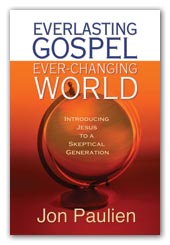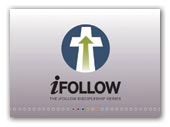BY MONTE SAHLIN
Despite the upsurge in Evangelical Christians in recent decades and renewed attention to religion in politics, America is becoming a more secular nation. Canada is well ahead of the curve on this trend. The United States is often touted as “exceptional” in a general trend toward less religion and more nonbelievers across the global North.
The American Religious Identity Survey (ARIS) has been conducted three times about a decade apart, beginning in 1990. It has had a very large random sample each time and simply asks people which religion they prefer. Many of the respondents are not actually members of the faith that they mention to the interviewers.
Many of the long-established religions in America have suffered significant decline in the two decades from 1990 to the most recent survey in 2008. The percent identifying with such mainline Protestant denominations as Methodists, Lutherans, Presbyterians, and the Episcopal Church has dropped from 18.7 percent to 12.9 percent. The percent of people saying they are Catholic has dropped from 26.2 percent to 25.1 percent. Those who identify themselves as Jews have dropped from 1.8 percent to 1.2 percent.
 There has been a small increase in the number identifying with conservative Evangelical denominations (including Seventh-day Adventists) from 5.8 percent to 6.7 percent. Adventists constitute about one third of 1 percent of Americans (and that portion has not changed in more than five decades).
There has been a small increase in the number identifying with conservative Evangelical denominations (including Seventh-day Adventists) from 5.8 percent to 6.7 percent. Adventists constitute about one third of 1 percent of Americans (and that portion has not changed in more than five decades).
During the same time the percentage of Muslims in America has doubled, and the percentage who identify with Eastern religions has more than doubled, although both are very small segments. The big swing is that of the “nones,” those who say they have no religion or “none of the above.” It has nearly doubled during the two decades, moving from 8.2 percent in 1990 to 15 percent in 2008. Among young adults the increase is even more rapid. Today, fully one in four Americans under 30 years of age reports no religious preference.
These “nones” consider themselves not religious in any way, although most say they are interested in spiritual matters. They disavow organized religion in favor of personal spirituality.
What Does This Mean for Your Church?
Adventist evangelism—as we have practiced it from the very beginning of our movement in America—has always assumed that our audience already believes in God, accepts the Bible as the Word of God, and is prepared to listen to texts and logic that undergird the unique Adventist teachings. But the growing numbers of secular Americans are unprepared to hear or understand our conventional evangelistic messages. In order to reach these individuals we must start at an earlier point in the logic of evangelism and address more basic concepts that we have always assumed to be already accepted.
 In most Adventist churches in metropolitan areas in the U.S. you will find that some of these secular people are already attending your church. Fellowship often develops long before belief in doctrines, and you cannot use some of the typical indicators such as vegetarian diet and simple dress, because many secular people accept those values without any Bible basis.
In most Adventist churches in metropolitan areas in the U.S. you will find that some of these secular people are already attending your church. Fellowship often develops long before belief in doctrines, and you cannot use some of the typical indicators such as vegetarian diet and simple dress, because many secular people accept those values without any Bible basis.
How do you move from friendship to Bible study, while retaining the friendship? The vast majority of Adventists live in a religious world different from that of these secular people, who may live next door or even be sitting next to you at work or at church. We must learn a new “language” to go on this mission.
Tools and Resources
- Reaching and Winning New Agers—available from AdventSource at www.adventsource.org or (800) 328-0525.
- Jon Paulien, dean of the School of Religion at Loma Linda University, has written several books on this topic, published by the Pacific Press and Review and Herald publishing associations. You can search his name at www.adventistbookcenter.com and find these books.
- iFollow discipleship curriculum resources—published by the North American Division Church Resource Center and available in the Meeting With Jesus section under Lessons at www.ifollowdiscipleship.org and in the iFollow Pastor’s Edition, which is being distributed to pastors on DVD.
________
Monte Sahlin is director of research and special projects for the Ohio Conference and a senior consultant at the Center for Creative Ministry. Questions and suggestions can be sent to him at [email protected]. This article was published February 10, 2011. 
 There has been a small increase in the number identifying with conservative Evangelical denominations (including Seventh-day Adventists) from 5.8 percent to 6.7 percent. Adventists constitute about one third of 1 percent of Americans (and that portion has not changed in more than five decades).
There has been a small increase in the number identifying with conservative Evangelical denominations (including Seventh-day Adventists) from 5.8 percent to 6.7 percent. Adventists constitute about one third of 1 percent of Americans (and that portion has not changed in more than five decades). In most Adventist churches in metropolitan areas in the U.S. you will find that some of these secular people are already attending your church. Fellowship often develops long before belief in doctrines, and you cannot use some of the typical indicators such as vegetarian diet and simple dress, because many secular people accept those values without any Bible basis.
In most Adventist churches in metropolitan areas in the U.S. you will find that some of these secular people are already attending your church. Fellowship often develops long before belief in doctrines, and you cannot use some of the typical indicators such as vegetarian diet and simple dress, because many secular people accept those values without any Bible basis.